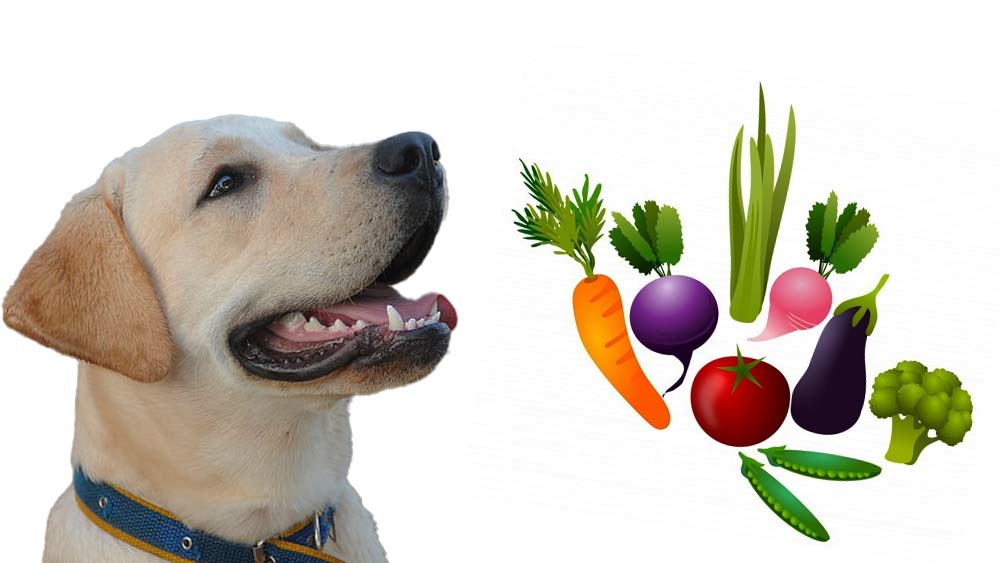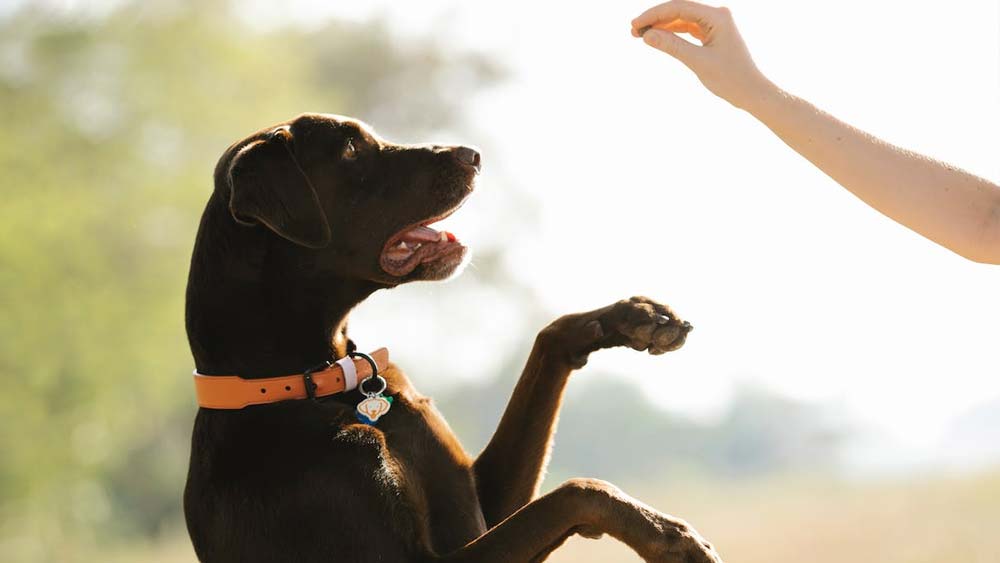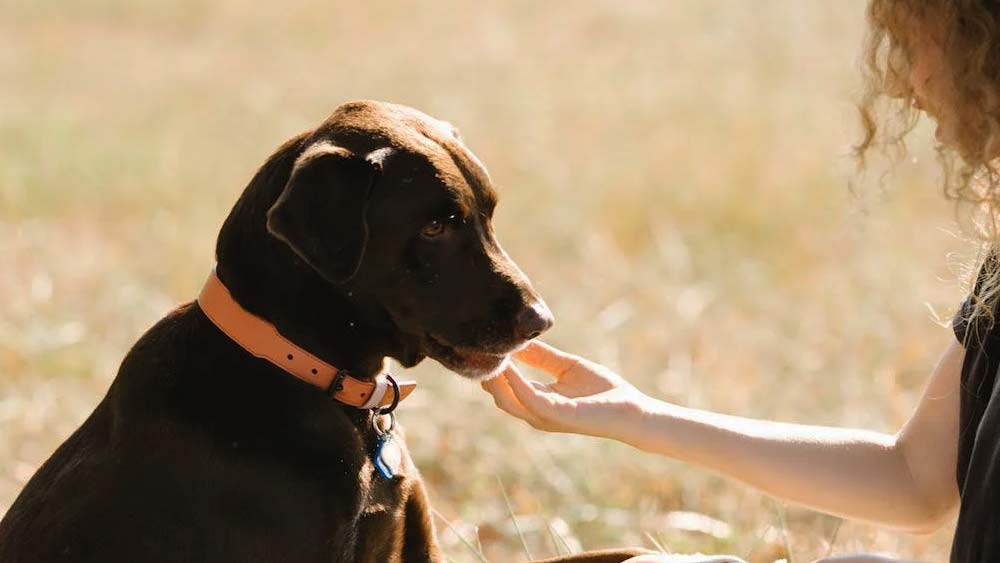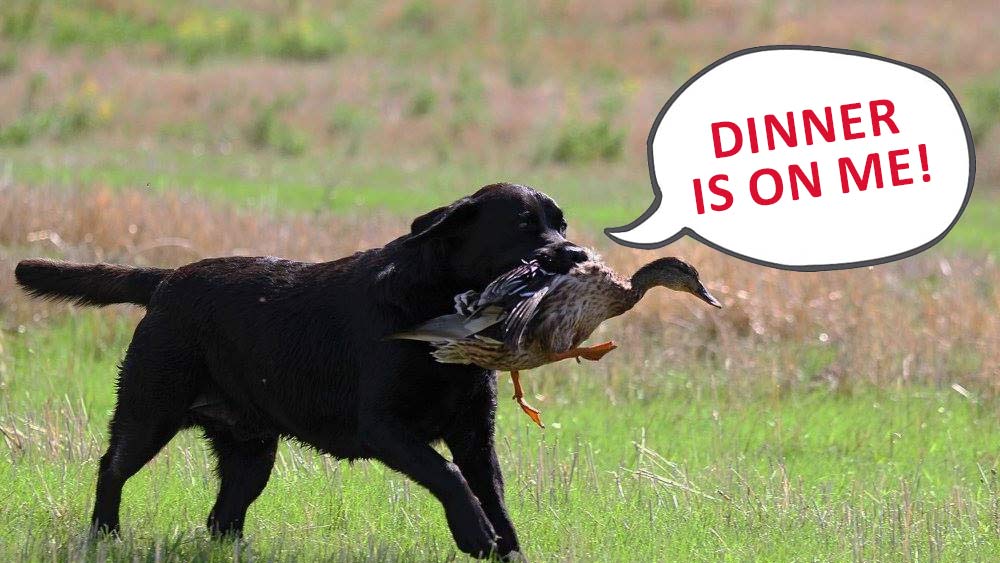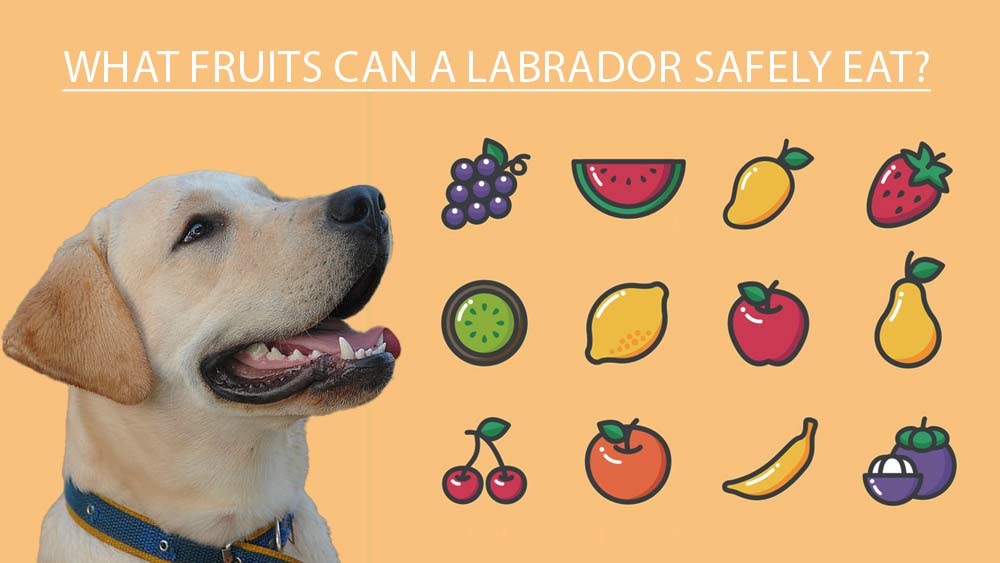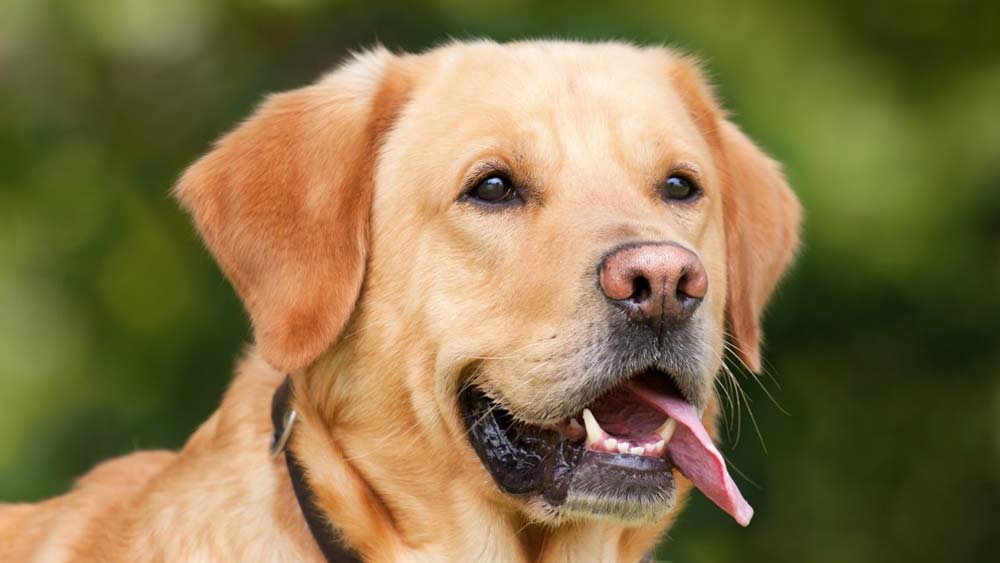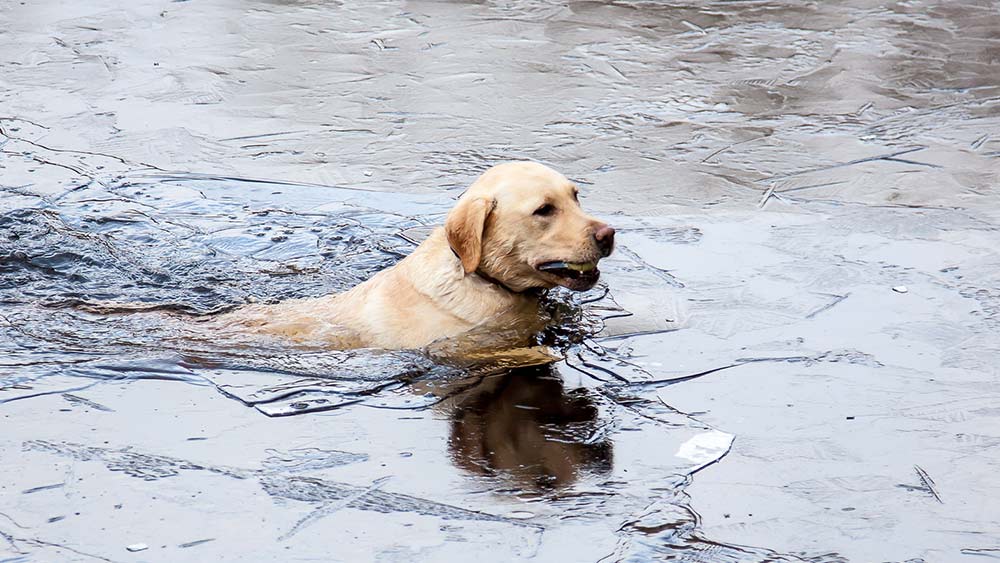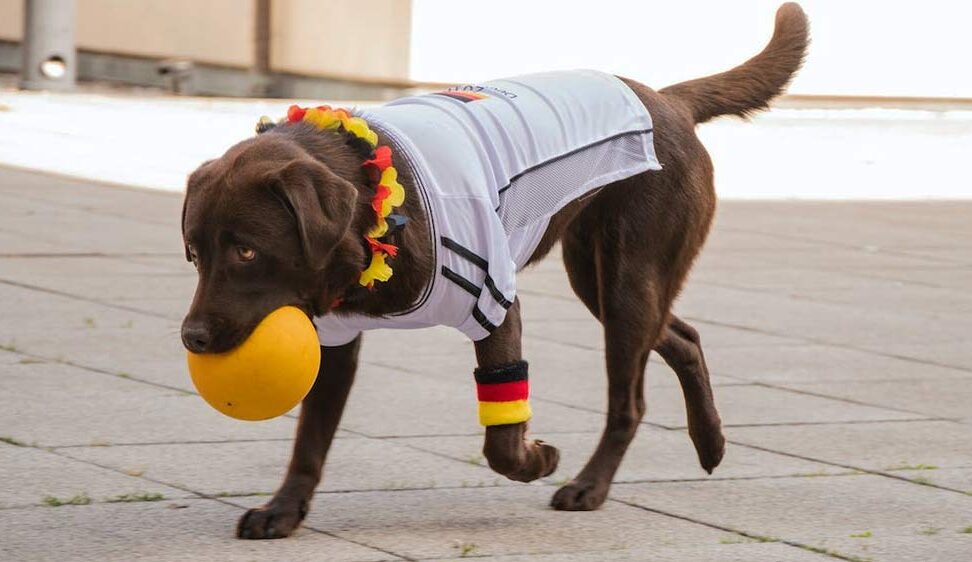Labradors are one of the most popular types of dogs because they are friendly and loyal. They are also very active animals that need a balanced diet with healthy sources of carbs, proteins, fats, vitamins, and minerals. Labradors need to eat vegetables because they give them the nutrients they need to grow and develop properly. But there are some vegetables that Labradors shouldn’t eat because they could be bad for their health. Garlic and rhubarb leaves, which have oxalic acid, are two examples. Also, some Labradors might not like vegetables or have trouble digesting them when they eat a lot of them. This article will talk about which vegetables Labradors can and can’t eat and how to get a picky Labrador to eat vegetables.
Vegetables Labradors CAN Eat:
Carrots
Carrots make a great snack because they are high in fiber and low in calories. This orange vegetable is fun for your dog to chew on, too. It is in a lot of dog food.
Labradors can eat carrots. You could mix them with other vegetables to make a healthy snack.
When a Labrador is being trained, baby carrots are often used as treats.
Corn:
Labradors can eat corn, but it shouldn’t be a big part of their diet because corn is high in carbohydrates and Labradors need more protein than carbohydrates. You can eat corn, but not corn on the cob. Dogs should never be given corn on the cob because it is hard for them to digest.
Broccoli
Broccoli has a lot of vitamin C, which is good for Labradors’ skin, coat, and overall health. It’s good for your health, and it’s also good for the health of your dog. Some dry dog foods on the market even have broccoli in them. It is high in fiber, antioxidants, and easy-to-digest plant protein. There are also vitamins and minerals in it.
Sweet Potatoes
Beta-carotene, calcium, magnesium, phosphorus, and iron are just some of the vitamins and minerals in sweet potatoes that help keep Labradors healthy.
Ensure the sweet potato is cooked and the skin is removed before giving it to your dog. When you leave the skin on, it’s harder for your dog to digest. Don’t ever give your dog a raw sweet potato. Not only are they hard for your dog to chew, but they can also upset his stomach and even block his intestines.
Green Beans
Green beans are a great source of protein and fiber, which helps keep Labradors’ digestive systems healthy and gives them energy-boosting carbs. As long as they are plain, labs can eat any green beans. Vets say that green beans are a healthy snack for dogs and that they are safe for them to eat. Better yet, dogs seem to like them a lot.
Peas
Peas are full of good things for Labradors to eat, and they love the taste. One of the best vegetables for Labradors to eat. Your dog can eat fresh, frozen, or thawed peas, but not peas that come in a can.
Spinach
Spinach is full of antioxidants, which protect cells from damage caused by free radicals. It also gives your dog important vitamins A and K and minerals like potassium and zinc.
Pumpkin
Pumpkins have antioxidants called carotenoids, omega-3 fatty acids, and Vitamin A, all of which help keep Labrador coats shiny and healthy. Labradors can eat canned pumpkins, but giving them fresh pumpkins is a better way to give them the necessary vitamins.
Cucumbers:
Labradors can eat cucumbers in small amounts because they are mostly water and have few calories.
Kale
Kale has a lot of vitamins A, C, and K, as well as minerals like calcium, magnesium, and potassium. It also has a lot of fiber, which helps Labradors keep their digestive systems in good shape. Before using kale, ensure your Lab doesn’t have any diseases. When you boil kale, it loses some of its health benefits, so it’s best to steam or blanch it lightly.
Celery
Celery gives Labradors important vitamins and minerals, like vitamins A and K, and fiber that helps them digest their food. Celery is also low in calories and helps Labradors stay at a healthy weight.
Beets:
Beets have fiber, vitamins, and minerals like Vitamin C, potassium, folate, and magnesium. There are betalain pigments in the skin. These pigments help fight inflammation and free radicals. Labradors can eat beets in moderation, and the vitamins and minerals in beets help keep them healthy.
Brussels Sprouts:
Brussels sprouts are another high-fiber vegetable. They have a lot of vitamins C and K, as well as trace minerals like magnesium, which are important for your muscles and metabolism. Brussels sprouts are safe for Labradors to eat, but they should only have a small amount because they are high in fiber, which can cause digestive problems if too much is eaten.
Lettuce:
Lettuce is a great vegetable for Labradors because it is full of fiber and has important vitamins and minerals like vitamin A and iron. Lettuce can also help Labradors keep their digestive and inflammatory systems in good shape.
Cauliflower:
Labradors can eat a small amount of this cruciferous vegetable. It has vitamins A and K and important minerals like magnesium and potassium that help keep Labradors healthy.
Beans:
Pinto, black, butter, and red kidney beans are all safe for Labradors to eat when cooked properly. These beans contain high amounts of protein and fiber necessary for Labradors’ overall health. However, raw or undercooked beans can be difficult to digest, so always ensure they are thoroughly cooked before feeding them to your Lab.
Cabbage:
Labradors can eat a little cabbage because it gives them the vitamins, minerals, and fiber they need to stay healthy. Cabbage is also low in calories, making it a great food for Labradors trying to stay the same weight. Just don’t give your Lab too much cabbage at once because it can cause digestive problems if they eat too much.
Vegetables Labradors SHOULDNT Eat:
Onions:
Onions contain sulfoxides and disulfides that are poisonous to Labradors. Eating too much onion can lead to anemia and cause damage to red blood cells.
Garlic:
Garlic contains the same ingredient as onions, which can be toxic in large quantities for Labradors. It is important not to feed your Labrador garlic or any foods containing garlic as it could make them very sick.
Rhubarb Leaves:
The leaves of rhubarb plants are highly toxic for Labradors as they contain oxalic acid, which can harm their nervous systems upon ingestion leading to paralysis or seizures
Eggplant
Eggplant isn’t toxic, but it belongs to the nightshade family and is linked to allergic reactions in some dogs. It is best to avoid giving Labradors eggplant as it could trigger an allergic reaction.
Raw Potatoes:
Labradors should never eat raw potatoes as they contain solanine and chaconine, which are both toxic for Labradors if eaten in high enough doses.
Mushrooms:
Certain types of mushrooms, like Amanita phalloides, also known as the “death cap” mushroom, contain toxins that can be fatal if ingested by Labradors. It is best to avoid feeding your Labrador any mushroom as the risk of poisoning is high.
How To Feed Vegetables to a Labrador that hates Veggies?
If your Labrador doesn’t like vegetables, try adding small pieces of cooked vegetables to their regular food or giving them cooked vegetables as treats. You can also add peanut butter or cheese to the food to make it more tasty. You can get your Labrador to eat more vegetables by getting creative with recipes and textures. Try giving them different kinds of vegetables and see which ones they like best. However, keep in mind that not all Labradors will eat anything green. If you are worried about your Labrador’s health because you feed it vegetables, you should talk to your vet.
Can Labradors Eat Raw Vegetables?
Yes, Labradors can eat raw vegetables, but you should only give them a small amount and always do research to make sure they are safe. Cut or grate the vegetables into small pieces to make them easier to digest, and don’t give Labradors any of the above vegetables that could be harmful. Raw vegetables can give dogs important vitamins and nutrients they need, like vitamins A, C, K, magnesium, potassium, and other trace minerals.
Can Labradors Eat Fresh Produced Canned Vegetables?
In general, fresh vegetables from the farm or that have just been picked are better for your dog than frozen or canned vegetables. But you can still give them small amounts of frozen and canned vegetables. Labradors can eat canned vegetables as long as they don’t have salt, sugar, or Chemical Compounds added to them. There are some health benefits to eating canned vegetables, such as getting fiber, antioxidants, and vitamins A, C, and K. However. Due to the high amount of sodium in canned vegetables, Labradors shouldn’t eat a lot of them. Before giving the vegetables to your Labrador, you should also check the can for any signs of spoilage. You can also reduce the amount of sodium in canned vegetables by rinsing them with fresh water before serving them. You can always start slowly when giving your Labrador new foods, and if you have any health concerns, you can talk to your vet.
Summary:
Labradors can eat vegetables as part of their diet, but they should not eat certain vegetables. Some of these are garlic, rhubarb leaves, raw potatoes, eggplant, and mushrooms. Garlic and foods with garlic in them can make dogs very sick, and the oxalic acid in rhubarb leaves can hurt a Labrador’s nervous system and cause them to become paralyzed or have seizures. Mushrooms like the death cap are poisonous and could severely hurt Labradors if they ate too many of them. Solanine and chaconine, which are found in raw potatoes, can hurt dogs if they eat too much. Eggplant is not poisonous, but it is in the nightshade family and could make some Labradors sick if they are allergic to nightshades.
If your Labrador doesn’t like vegetables, you can add small pieces of cooked vegetables to their regular food or give them cooked vegetables as treats. Peanut butter or cheese might make the food more appealing, and you can get creative with recipes and textures to make a vegetable-based dish that you’ll enjoy. Labradors can also eat raw vegetables, but you should always research to ensure they are safe for your Labrador and chop or grate them into smaller pieces to make them easier to digest. You can also eat canned vegetables as long as they don’t have any added salt, sugar, or chemicals. However, since canned vegetables are high in sodium, you shouldn’t eat too many of them at once. Talk to your vet before adding new foods to your Labrador’s diet, and start slowly with each type of vegetable to reduce any health risks that might come with eating it.

